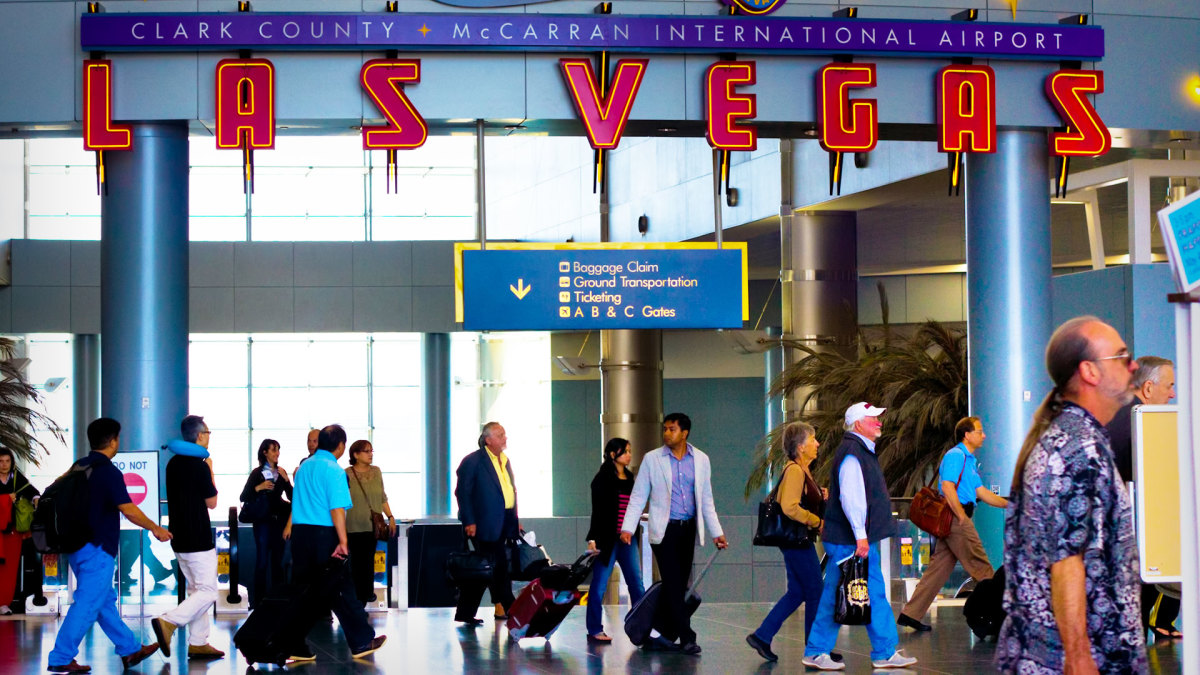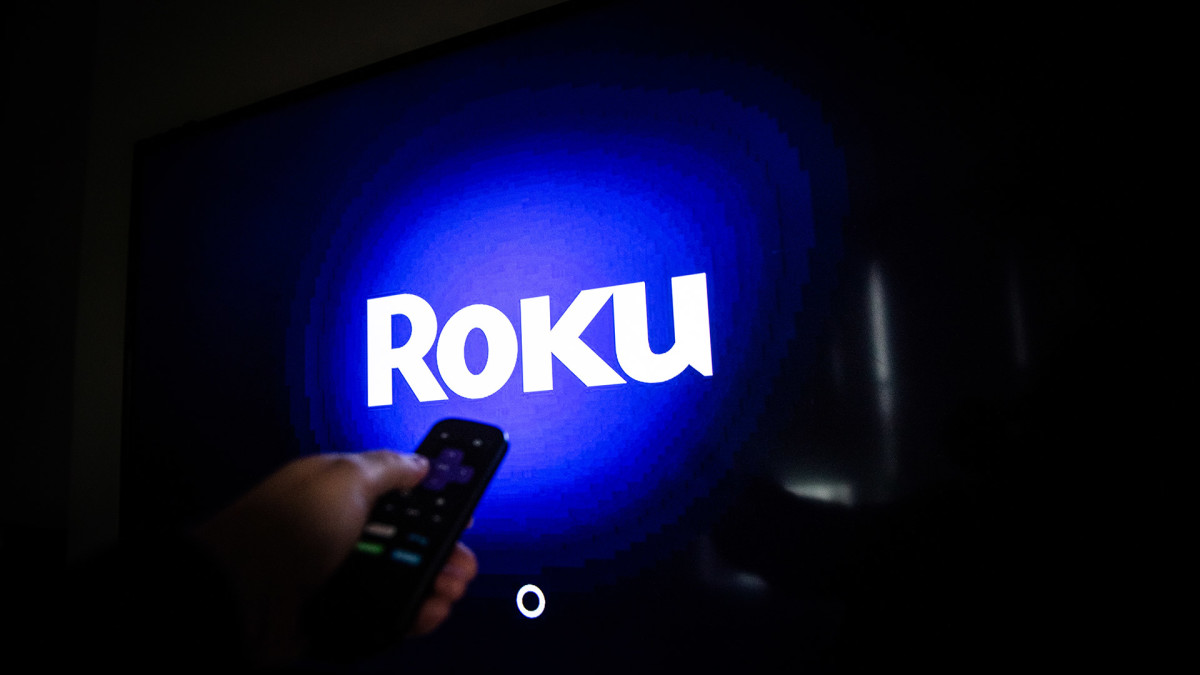Uncategorized
Closed Las Vegas Strip hotel gets new life, casino appears dead
One long-delayed hotel project has new life while a stalled Las Vegas Strip resort casino has not shown any signs of life.

Sometimes plans get shared for Las Vegas Strip resorts, casinos, restaurants, and retail stores that never actually come to be. It's challenging to build in Las Vegas — it is a desert that has few raw materials where the weather can be punishing — and many projects never get off the ground.
In many cases, there are billion-dollar projects that kick off with great fanfare, which never even start. That's the case with the All-Net Arena planned by former NBA player Jackie Robinson on the north end of the Strip.
Related: Iconic Las Vegas Strip venue has last act before implosion
Plans have been filed, and ground was broken back in 2014, but numerous funding plans for the project have either fallen through or they were never real in the first place. It's a tantalizing dream as Las Vegas hopes to land and NBA expansion team, but Robinson's group has not moved past the announcement and theater stage of the project.
That's not uncommon on the Strip but long delays don't always mean a project has died. Another North Strip property, Fontainebleau Las Vegas, recently opened after a 20-year odyssey that included multiple stops and starts as well as several owners.
Now, another Las Vegas Strip project — one first made public in 2019 — appears to be back from the dead.
Image source: Shutterstock
Long-closed Las Vegas Strip property may make a comeback
The former Atrium Hotel first went bankrupt back in 2008 during the housing crisis when a lot of businesses struggled due to failing consumer demand. Siegel Group, a Las Vegas real estate developer bought the property for $4.2 million in 2012 and shared plans to rebuild it in 2019.
Those plans never actually happened, likely due to concerns about the Covid pandemic, but now the company which owns Las Vegas' Gold Spike Hotel & Casino, has new plans for the Atrium site.
"The Siegel Group is in its 'final stages' to get permits to move forward with plans to demolish the Atrium Hotel and build a 480-unit flexible-stay apartment complex," said Siegel Group CEO Stephen Siegel, the Las Vegas Review-Journal reported.
No start date has been shared, but Siegel Group has asked Clark County to make some improvements to the area around the site including closing off a tunnel and widening "the stretch of Paradise Road between Harmon Avenue and Sands/Twain Avenue," the paper reported.
Another Las Vegas Strip project remains stalled
When construction on the Dream Hotel and Casino stopped in March 2023 over unpaid bills, the project's owner, Shopoff Realty Investments, said the pause would be short. It promised that new funding was coming, but construction on the property remains stopped.
The boutique hotel sits near the Harry Reid International Airport 5051 South Las Vegas Boulevard.
"According to developers, the new resort is expected to be 20 stories tall with 531 guestrooms and suites as well as dining and nightlife venues, a pool deck, a bar, and a lounge space on the gaming floor and on-site parking," KTNV Las Vegas reported.
The project, which was supposed to open in Fall 2024, was supposed to become a 531-room lifestyle hotel and casino with seven experiential dining and nightlife venues, 12,000 square feet of meeting and event space, and a 20,000-square-foot casino.
Construction stopped when the developer fell millions of dollars behind in paying its building partners. After sharing plans for new funding that would have led to a January 2024 restart, the developer has been silent about the future of the Dream Hotel and Casino.
"This project represents a new type of Vegas hotel experience, offering tourists and locals alike a unique boutique hotel option on the Las Vegas Strip. We are thrilled to break ground on Dream Las Vegas and watch as it energizes the southern end of the Strip, while providing countless jobs and revenue for local government," explained Shopoff Realty Investments CEO William Shopoff at the time.
real estate pandemic gold
Uncategorized
Analyst reboots Roku stock price target ahead of earnings
This is what could happen next to Roku shares.

The radio comedian Fred Allen once expressed his disdain for television by declaring, "They call it a medium because nothing is well done."
But that was a long time ago. TV has moved on from the old cathode ray tube machines of yesteryear that broadcast "Captain Video and His Video Rangers" to sophisticated, connected devices that offer all kinds of entertainment created all over the world.
Related: Roku is planning a change users won't like
Watching TV is America's favorite pastime, according to the U.S. Bureau of Labor Statistics, and the people at Roku (ROKU) have a nice piece of that action.
Founded in 2002 by Anthony Wood, Roku gets its name from the Japanese word for "six," as it was the sixth business the billionaire established.
The San Jose, Calif.-based company announced in February that it had more "than 80 million active accounts and counting" as consumers continue to stream over to TV streaming.
Tiffany Hagler-Geard/Bloomberg via Getty
Roku sees 'challenging environment'
Roku said that viewer engagement was also at a record high, where, for the first time, more than 100 billion hours were streamed on the platform in 2023, averaging a record of 4.1 hours per day per account in the fourth quarter.
However, there have been challenges as the streaming sector has become more competitive.
The stock price has dropped from $473 per share in the years after the Covid pandemic, when in-home entertainment demand soared, to $57 at last check.
Related: Analysts reset Netflix price targets ahead of earnings amid ad-tier push
In addition, the company announced a security breach on April 12, saying that 576,000 customer accounts were affected.
This followed an earlier breach, announced on March 12, that affected 15,363 customers and involved stolen credit card, password, and username information.
Roku is scheduled to report first-quarter earnings on April 25. Analysts surveyed by FactSet expect the company to post a loss of 61 cents per share on $844 million in revenue.
A year ago, the company posted a loss of $1.38 per share on revenue of $741 million.
Roku reported a bigger-than-expected fourth-quarter loss in February, amid intense competition and lower customer spending.
In a Feb. 15 letter to shareholders from Wood and Chief Financial Officer Dan Jedda, the company said it planned to increase revenue, free cash flow, and profitability over time.
"At the same time, we remain mindful of near-term challenges in the macro environment and an uneven ad market recovery," Roku said.
"While we will face difficult year-over-year growth rate comparisons in streaming services distribution and a challenging (media and entertainment) environment for the rest of the year," the letter said, "we expect to maintain our Q4 2023 YoY Platform growth rates in Q1."
Analyst cites Roku's competitive disadvantages
Wedbush analyst Alicia Reese cut her price target for Roku to $80 from $120 per share, keeping her outperforming stock rating.
"We believe Roku has found religion in generating and expanding (free cash flow), and will not revert to excessive spending for long-term growth," Reese said in a note to investors. "Instead, Roku intends to balance new initiatives that result in near-term ROI with expanding FCF and tracking toward positive net income."
More Wall Street Analysts:
- Analyst unveils new Nike price target ahead of big summer for sports
- Analysts weigh in on Google-parent Alphabet’s stock after cloud event
- Analysts revamp Disney stock price target after proxy fight
She added that Roku continues taking market share as ad dollars shift from linear to digital-connected TV.
"While we were previously sanguine about Roku’s e-commerce opportunity, we are less so as we became aware of some competitive disadvantages for Roku, and its need to ramp investment to rise to the level of competition in the space," Reese said.
Coupled with industry-wide headwinds in media and entertainment spending, the analyst thinks Roku’s focus on expanding positive EBITDA in 2024 may inhibit its ability to compete in e-commerce.
"As we continue to see significant opportunity for growth in all other areas of Roku’s business and believe that the company is committed to expanding profitably, we reiterate our outperform rating," Reese said.
The analyst said that Roku's growing prominence as a platform and ability to advertise on all avenues of CTV and TV benefits it immensely.
"However, Roku’s fight for ad dollar market share will be challenged as competition heats up on the e-commerce front from companies like Amazon, Google, and Walmart," she said, "especially as these companies have started to show increased ad capabilities and targeting from a vast amount of first-party data."
The analyst said that she believes that as media and entertainment spending normalizes, Roku will be the biggest beneficiary in the connected TV space.
Related: Veteran fund manager picks favorite stocks for 2024
stocks pandemic recoveryUncategorized
Amid Budget Shortfall, San Francisco Reexamines Tax Burden On Big Businesses
Amid Budget Shortfall, San Francisco Reexamines Tax Burden On Big Businesses
Authored by Brian Back via The Epoch Times (emphasis ours),
Facing…

Authored by Brian Back via The Epoch Times (emphasis ours),
Facing mounting budget woes this election year, as spending far outpaces revenues, the City of San Francisco is scrambling to reform its infamously large and complex tax burden on business.
San Francisco’s five largest employers now account for nearly a quarter of the city’s total business tax revenue, according to an April 14 report in the San Francisco Examiner. If any were to relocate outside of the city, such would leave San Francisco—currently facing an $800 million budget deficit—vulnerable.
As such, Mayor London Breed and city officials are currently negotiating with business and labor leaders to devise tax reform measures for the November ballot that could simplify its tax code and even out the load on top businesses, the San Francisco Examiner reported.
In particular, city officials say they would like to see changes that would not incentivize businesses to move jobs out of San Francisco, since the city’s largest employers are required to pay a disproportionate amount of business taxes.
But shifting the tax burden elsewhere, such as increasing the city’s already large sales tax, could hurt a retail sector that has been decimated by a flurry of closures in recent years, analysts say.
City Controller Greg Wagner has said the complexity and number of new taxes passed by voters in recent years combined with a poor economy have increased tax disputes between the city and large businesses, according to Alyssa Sewlal, a spokesperson for his office.
Such disputes include a legal demand from General Motors for more than $121 million in tax refunds, as well as tens of millions of dollars in refund claims, and settlements and lawsuits on behalf of companies who say they were overtaxed such as Deloitte, Gap, WeWork, AppLovin, Chime Financial, and Block—formerly Square—since 2020, according to the San Francisco Examiner.
At the same time, the mayor’s office has been trying to direct more attention toward helping tourist-reliant businesses including hotels, restaurants, and arts and entertainment groups, including launching new small business grants and laying out plans to revitalize its downtown. Several such businesses have denounced the city’s street conditions, crime, costly permitting, and escalated taxes.
Factors such as a struggling office market aided by the rise of remote work, retail and commercial vacancies, poor recovery from the pandemic, and lagging tourism have played a role in revenues not keeping up with city spending that has increased significantly over the past decade.
Currently at $14.6 billion, San Francisco’s budget rivals most major U.S. cities. Because it is forecast to escalate by more than $1 billion over the next five years, the city will be on track to post a deficit surpassing $1 billion by 2027 barring major changes, the San Francisco Examiner reported.
City employee salaries, pension benefits, and health care costs are projected to increase by about $500 million within the upcoming four fiscal years, according to Ms. Breed’s office.
The mayor, who is up for re-election in November, told city departments in December they will be required to cut their budgets by about 10 percent in the upcoming fiscal year, and that they must also consider an additional 5 percent in cuts as a “contingency reduction.”
The city’s next budget, which goes into effect July 1, is scheduled to go before the San Francisco Board of Supervisors for a vote June 1.
Uncategorized
Middle Class Can’t Afford Homes In Nearly Half Of Top 100 US Metros, Study Finds
Middle Class Can’t Afford Homes In Nearly Half Of Top 100 US Metros, Study Finds
By Sam Bourgi of CreditNews,
Housing is becoming an exclusively…

By Sam Bourgi of CreditNews,
Housing is becoming an exclusively upper-class privilege in a growing number of cities.
According to a new study by Creditnews Research, in 2024, middle-class households could afford to buy an average home in just 52 of the country’s 100 largest metros.
Just five years earlier, they could afford a home in 91 of the top 100 metros.
The situation is far worse for lower middle-class households, as they can only afford a home in seven of the largest 100 metros.
In total, 41 out of the 100 metros require a gross annual income of $100,000 or more to qualify for an average home. In 13 metros, an average income of more than $155,000 is needed.
In those cities, even the upper-middle class doesn’t qualify for an average home.
The study determined affordability by looking at how much income households need to earn to afford a down payment, mortgage payment, and related fees for an average home.
A home is considered affordable if monthly housing and mortgage costs don’t exceed 28% of a household’s gross income.
“There’s no two ways about it: Housing affordability has worsened significantly since Covid,” the report said. Since the pandemic, 39 of the most populous metros have fallen below the affordability threshold.
As expected, the most affordable areas for the middle class are located in the Midwest, Rust Belt, and parts of Texas, while the West Coast, Tri-State Area, and Hawaii are largely out of reach.
Affording a home is no longer a guarantee for the middle class
Being considered “middle class” doesn’t carry the same significance as it did just a few years ago.
“In the past, if you were middle class, it was almost assumed you would become a homeowner,” said Ali Wolf, chief economist of Zonda, a housing market research firm.
“Today, the aspiration is still there, but it is a lot more difficult. You have to be wealthy or lucky.”
That's all thanks to a “perfect storm” of elevated mortgage rates, sky-high home prices, and a lack of inventory, making housing more unaffordable.
The result is that middle-income buyers, or those with an annual income of up to $75,000, could only afford about one-quarter of listings on the market last year.
According to Nadia Evangelou, the director of real estate research at the National Association of Realtors, “Middle-income buyers face the largest shortage of homes among all income groups, making it even harder for them to build wealth through homeownership.”
Mortgage rates creep closer to 7%
After falling between November and January, mortgage rates are creeping back up.
According to Freddie Mac, 30-year fixed-rate mortgages reached 6.88% in the week of April 11 and at some point climbed well above 7%.
“As mortgage rates increase, it’s never good news for the housing market, especially when more sellers are in the mix,” said HousingWire lead analyst Logan Mohtashami.
“We saw a bounce in demand early in the year as rates fell. However, just like last year, when mortgage rates headed higher, it limits sales growth.”
The reversal seems to be driven by a surprise spike in inflation, which has come out higher than expected for four consecutive months
“For homebuyers, the latest CPI report means mortgage rates will stay higher for longer because it makes the Fed unlikely to cut interest rates in the next few months,” said Chen Zaho, Redfin’s economic research lead.
“Housing costs are likely to continue going up for the near future, but persistently high mortgage rates and rising supply could cool home-price growth by the end of the year, taking some pressure off costs.”
-

 International1 month ago
International1 month agoParexel CEO to retire; CAR-T maker AffyImmune promotes business leader to chief executive
-

 Spread & Containment2 weeks ago
Spread & Containment2 weeks agoClimate-Con & The Media-Censorship Complex – Part 1
-

 International7 days ago
International7 days agoWHO Official Admits Vaccine Passports May Have Been A Scam
-

 Spread & Containment2 weeks ago
Spread & Containment2 weeks agoFDA Finally Takes Down Ivermectin Posts After Settlement
-

 Uncategorized3 weeks ago
Uncategorized3 weeks agoVaccinated People Show Long COVID-Like Symptoms With Detectable Spike Proteins: Preprint Study
-

 Uncategorized2 weeks ago
Uncategorized2 weeks agoCan language models read the genome? This one decoded mRNA to make better vaccines.
-

 Uncategorized2 weeks ago
Uncategorized2 weeks agoWhat’s So Great About The Great Reset, Great Taking, Great Replacement, Great Deflation, & Next Great Depression?
-

 International2 days ago
International2 days agoJ&J’s AI head jumps to Recursion; Doug Williams resigns as Sana’s R&D chief













